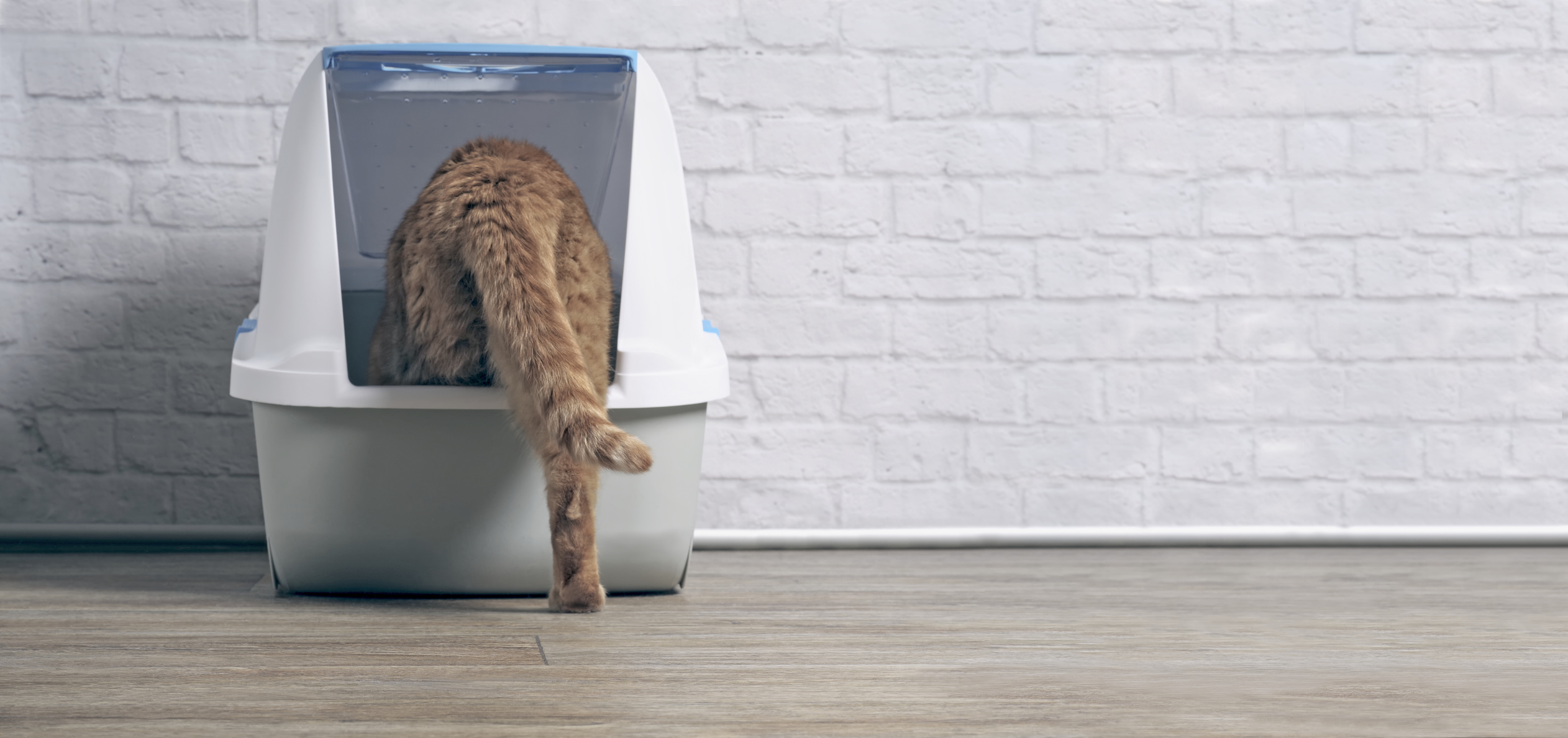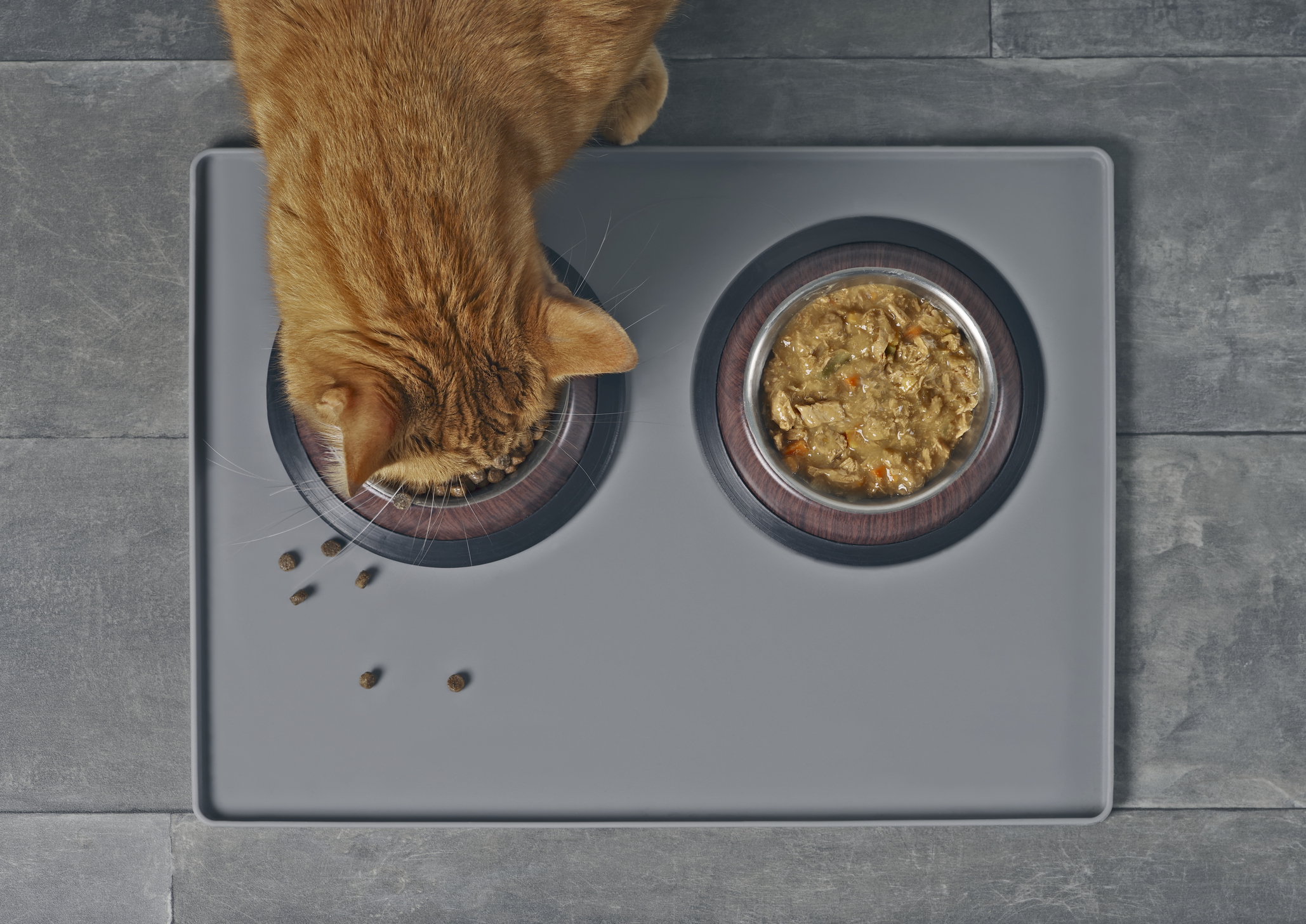
Identify & Manage Your Cat's Inflammatory Bowel Disease
Inflammatory Bowel Disease (IBD) is something many people struggle with. The good news is, you can easily change your diet or get prescription medication to help you cope with it. Your cat isn’t so lucky. They might be living with this chronic condition with no way of being able to alert you of it.
Thankfully, there are signs any cat owner can watch out for to alert them of a potential bowel condition their pet may be suffering from. Here’s what you need to know about feline IBD.
Not all bowel conditions are the same
If your cat frequently vomits or has loose stool, you’ve probably already taken them to the vet for a checkup. Answers about their condition can range from temporary illness (a bug) to a diet that disagrees with them to colitis, a condition resulting in inflammation from the colon. Remedies include everything from changing their food to giving them an antibiotic.
IBD isn’t often the first (or even second) diagnosis a vet will make. Why? Because IBD shares many symptoms with many other gut and bowel conditions that make it hard to nail down. Even more confusing for some pet owners, IBD is actually the catalyst for other conditions depending on where the inflammation occurs:
- If it affects the stomach, it’s gastritis.
- If it affects the small intestines, it’s enteritis.
- If it affects the colon, it’s colitis.

The most important thing to remember about IBD is the “I.” Inflammation is the main culprit and it’s likely what’s giving your feline friend the most grief. Whether it manifests as gastritis or colitis or simply causes your cat daily discomfort, pet owners need to know how to manage IBD as a root condition, as well as all its symptoms.
What about Irritable Bowel Syndrome (IBS)?
IBD and IBS differ in their root cause. IBD is a much more severe condition because it’s autoimmune related—meaning your cat’s immune system is overactive, causing the inflammation.
IBS is usually stress related. There’s no resolving IBD; only managing it with proper diet, care and medication. IBS usually goes away with proper stress management.
Symptoms of IBD in cats
The symptoms of IBD in your cat aren’t pleasant. The most common are loose stool and vomiting, which means paying close attention to your cat’s voiding habits and any vomiting incidents. The hallmarks of IBD are frequency and severity. If your cat always has diarrhea or vomits regularly, it’s a good sign of frequent inflammation in the gut and intestines.
Accompanying activity at both ends of your cat, keep a lookout for weight loss, lethargy and drastic swings in appetite. Cats exhibiting all these symptoms with frequent diarrhea and vomiting usually test positive for IBD. Vets are also much more likely to test for IBD when presented with all these symptoms, rather than just the vomiting or diarrhea.
Managing IBD if your cat has it
Living with IBD is as unpleasant for cats as it is for people. That is to say, maintaining good diet and bathroom habits is important. Medication is also often prescribed; however, it’s becoming more and more a second option in favor of nutritional therapy. New studies have shown that as many as 60% of cats with chronic GI disease improve with nutritional therapy alone and don't require steroids!

Changing your cat’s food to cope with IBD means switching to a low-fat, high-protein diet—specifically foods with hydrolyzed protein or special dietary fiber. This diet needs to be strict! Just like with humans, one “cheat” meal could be enough to cause a major flare-up, bringing back major inflammation and all the uncomfortable side effects that come with it.
Your vet is also likely to prescribe a vitamin B supplement to your cat if they’re diagnosed with IBD. Low vitamin B correlates to a large population of cats with IBD, and a supplement can help them get the vitamin B they might otherwise rely on a normal diet for.
Finally, probiotics and prebiotics are important. Cats with IBD have an unbalanced gut microbiome due to the inflammation, which is part of the reason for the consistent vomiting and diarrhea. Supplementing your cat’s diet with probiotics and prebiotics helps balance out their gut bacteria to aid in proper digestion.
Helping your cat live well with feline IBD
Feline IBD can’t be cured, but it can be very successfully managed. Taking the time to figure out if IBD is the root of an unhealthy gut means being able to treat it appropriately with the help of your vet. Once you know what you’re dealing with, a diet change and regular checkups are usually enough to manage it.
Frequent vomiting and unusual bathroom habits may seem routine for your cat, but that doesn’t mean they’re normal! Have your cat checked for IBD and get them the help they can’t ask for.


